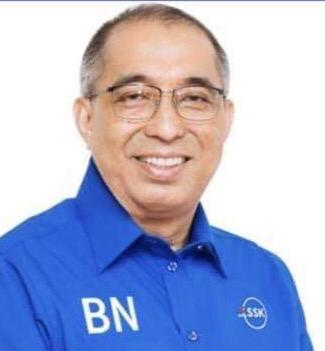SANDAKAN: Former Chief Minister of Sabah, Datuk Seri Dr Salleh Said Keruak is urging the state Barisan Nasional (BN) to have the chance to decide on collaborations with other parties using three key political principles.
In a report by Berita Harian, Salleh, who is also the Usukan State Assemblyman (ADUN), was quoted as saying that the three important principles are development politics, autonomy, and accommodation or power-sharing.
He said that autonomy and accommodation politics differentiate Sabah’s politics from Sarawak and the Peninsula, besides being among the reasons for the many changes in government throughout the state’s history.
“We ask to be given the opportunity to determine any coalition; we are involved in making decisions, and that coalition must be based on three main things, namely development politics, autonomy, and accommodation,” he said.
The former federal minister, who was a panellist at the ‘BN Building a Nation’ forum during the BN Sabah Convention in Sandakan on Sunday, said that the state government has changed many times since independence due to these factors.
“It is due to accommodation politics or power-sharing among the Muslim Bumiputeras, non-Muslim Bumiputeras, and Chinese, who are the main groups in this state,” he said.
He mentioned that any party forming the state government that fails to implement power-sharing among these three main groups in Sabah will be replaced.
“On average, ruling parties only last for 10 years; when there is an accommodation political issue, the people switch to another party in the elections. We can see what happened to the United Sabah National Organisation (USNO) Party.”
After about 10 years in power, USNO lost the election, not because of development but supposedly due to the lack of power sharing among the Muslim Bumiputera, non-Muslim Bumiputera, and Chinese.
Then, another new party was formed and won the election. The People’s United Party of Sabah (BERJAYA) was initially strong, but after 10 years, it changed again,” he said.
He recalled that the development in Sabah at that time was great, but due to political accommodation, Berjaya also eventually lost.
“So, in Sabah, we need to share power among the Muslim Bumiputera, non-Muslim Bumiputera, and Chinese,” he said, likening the frequent change of state government in Sabah to changing clothes.
He said that political autonomy refers to the demands of Sabah’s rights, wanting greater power to be given to the state.
Meanwhile, he said, the political cooperation formula in Sabah is based on a combination of national and local parties, not just local parties for Sabah as advocated by other parties.
He said that the presence of national parties does not mean colonisation; instead, national parties also help to restore the lost rights of Sabah, compared to local parties alone.
Source: Berita Harian


